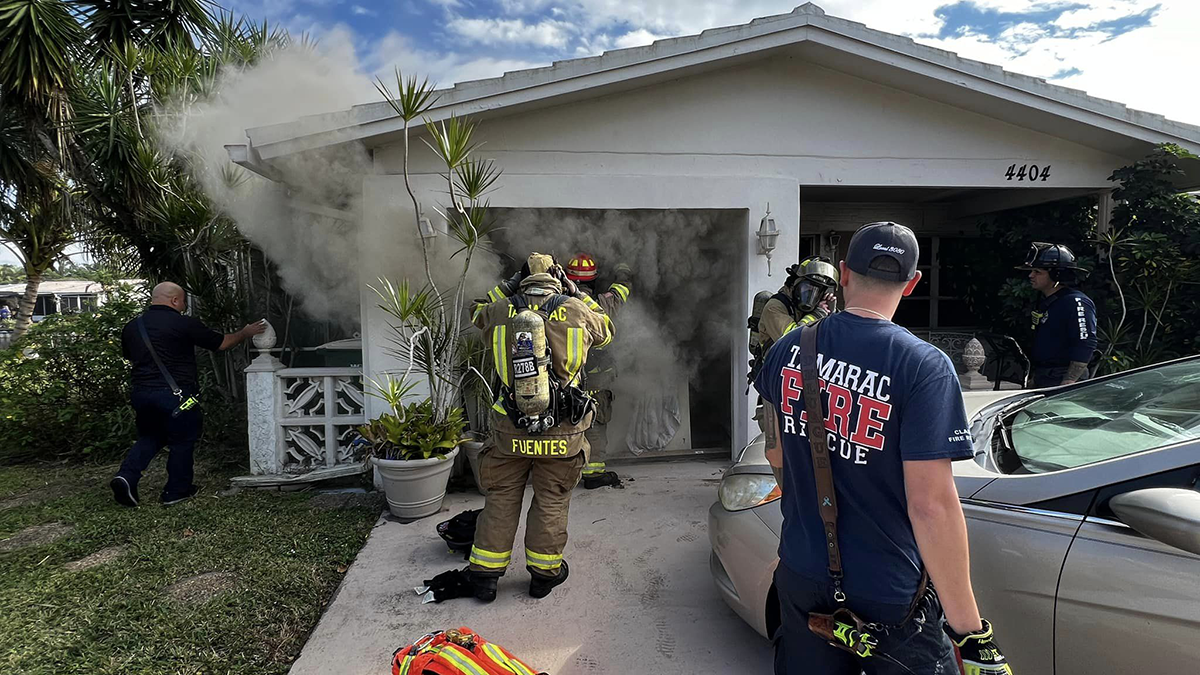The state of Florida will be restricting the COVID-19 vaccine to only residents.
Florida Surgeon General Dr. Scott Rivkees issued a public health advisory Thursday that restricts the first dose of the vaccine to residents and people who are in Florida providing health care services involving direct contact with patients.
The advisory cited the "extremely limited" availability of the vaccine.
Officials said residents must provide the department with a copy of his or her valid Florida driver license or a copy of a valid Florida identification card.
The vaccine will still be available to season residents who can provide either of those IDs. If they can't provide either, they must provide the department with a copy of two of the following that show proof of residential address:
- A deed, mortgage, monthly mortgage statement, mortgage payment booklet or residential rental or lease agreement.
- One proof of residential address from the seasonal resident’s parent, step-parent, legal guardian or other person with whom the seasonal resident resides and a statement from the person with whom the seasonal resident resides stating that the seasonal resident does reside with him or her.
- A utility hookup or work order dated within 60 days before registration in the medical use registry.
- A utility bill, not more than 2 months old.
- Mail from a financial institution, including checking, savings, or investment account statements, not more than 2 months old.
- Mail from a federal, state, county, or municipal government agency, not more than 2 months old.
- Any other documentation that provides proof of residential address as determined by department rule.
The health department also said the term "seasonal resident" means any person who temporarily resides in Florida for a period of at least 31 consecutive days in each calendar year, maintains a temporary residence in this state, returns to the state or jurisdiction of his or her residence at least one time during each calendar year, and is registered to vote or pays income tax in another state or jurisdiction.
Even before Rivkees issued his advisory, health departments in some Florida counties had already begun to restrict COVID-19 vaccines to state residents only as the demand continues to overwhelm local governments and hospitals. At least one hospital network had also announced earlier this week that it began restricting the vaccine to U.S. residents only.
Last week, Florida Gov. Ron DeSantis addressed reports that non-residents were coming to the state to get vaccinated after he opened appointments up to anyone 65 and older.
DeSantis said stories of people flying to Florida, getting vaccinated and returning home are overblown. While there have been scattered reports of such interlopers, DeSantis said the nonresidents who are getting shots are almost entirely “snowbirds,” residents who live in the state for several months during the winter and who could infect others if they aren't vaccinated.
Local
"I think it’s totally fine if they wanted to” be vaccinated, the Republican governor said at a news conference. “It’s not like they’re just vacationing for two weeks. ... They have relationships with doctors. They get medical care in Florida. ... So that’s a little bit different than somebody that’s just doing tourism.”
One of the state’s largest health networks, Jackson Health System, announced earlier this week that it began restricting the vaccine to U.S. residents by asking people who did not have picture ID issued by the U.S. government to provide another proof of U.S. residency.
“Jackson wanted to ensure ready access to the vaccine for anyone who lives in the United States, regardless of where in the country they live or their immigration status, but to ensure the vaccine is not distributed to ‘vaccine tourism,’” the health network said Tuesday in a statement.
The hospital network adopted the change a week after its CEO Carlos Migoya said the focus was to prevent the spread of the illness “whether you happen to be a citizen from another country or this country.”



